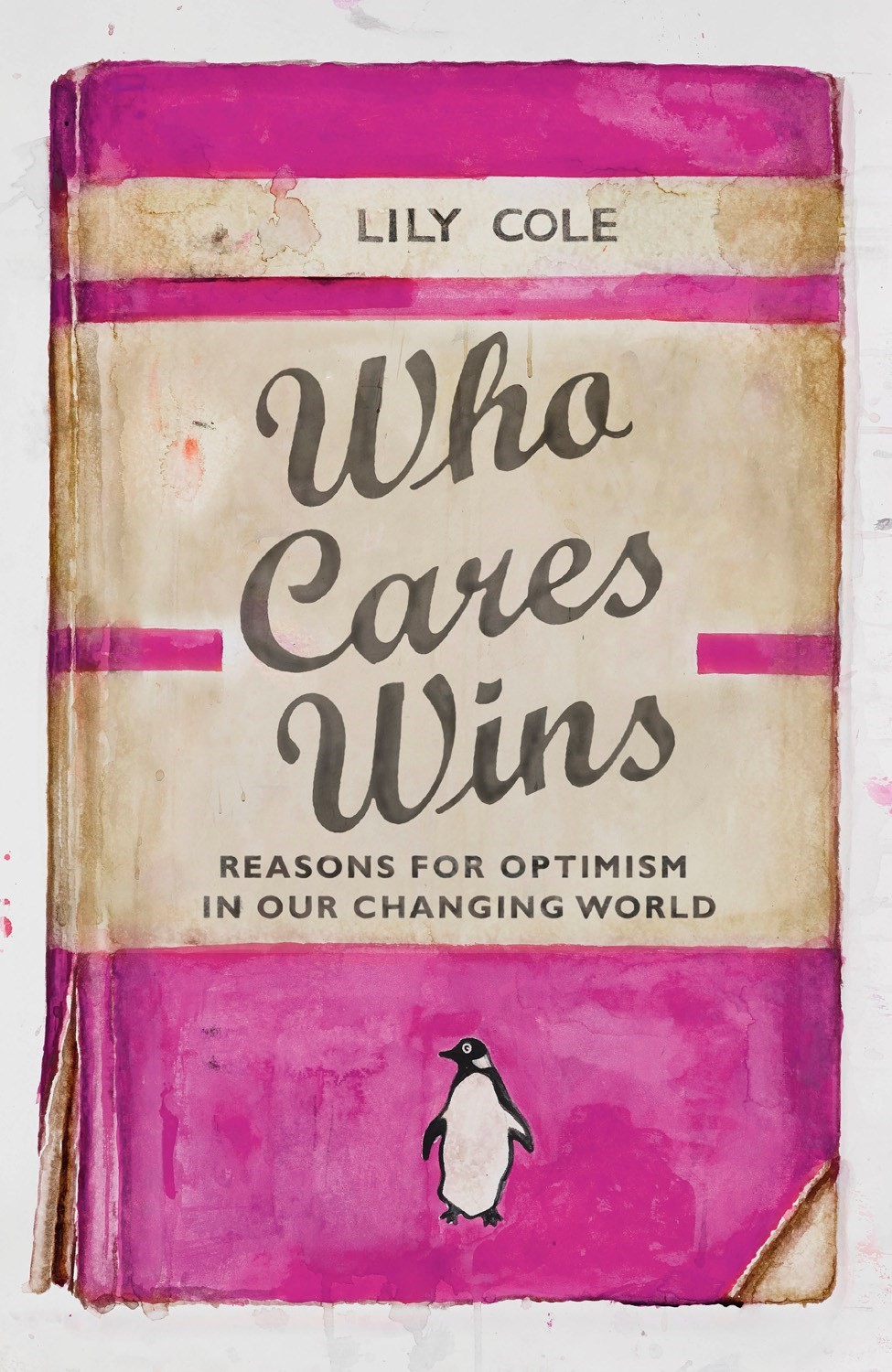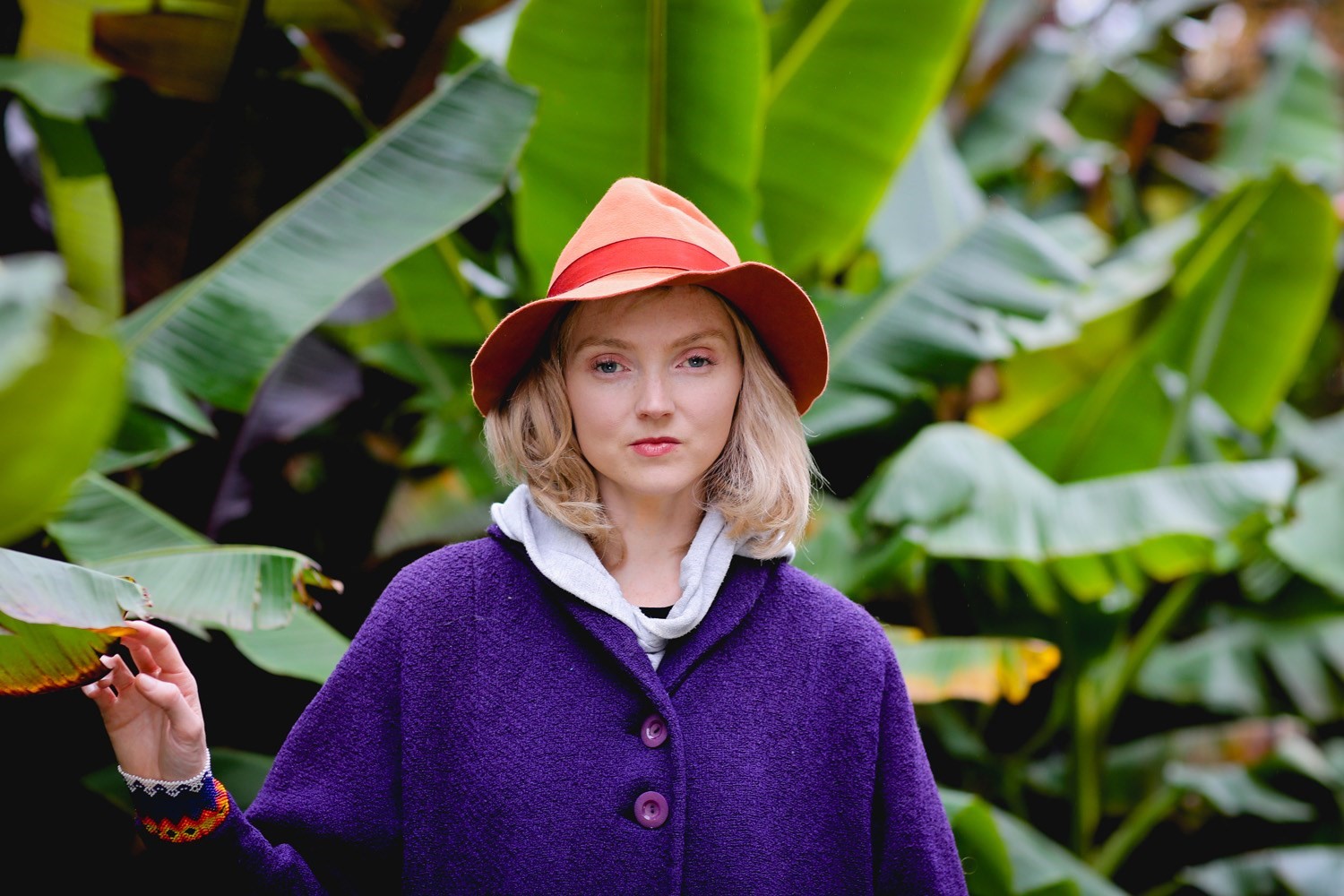The effects of the Covid-19 pandemic have been traumatic. And yet, governmental responses to it have inadvertently offered us a glimpse of a more environmentally sustainable way of life. As well as being a time of great hardship, 2020 will be remembered as the year that planes stopped flying across the skies and suddenly we could hear birdsong, that retail therapy was no longer an option and that, for the first time, we became acutely aware of our interconnectedness – on an economic-pathological-biological plane.
Lily Cole didn’t know that her new book Who Cares Wins: Reasons for Optimism in a Changing World, would be published in the midst of this crisis – it was written well before. And yet its publication now feels like brilliant timing. Who Cares Wins is an extremely well researched outline of the complex debates around environmentally impactful subjects such as fast fashion, consumerism, meat consumption, traffic emissions, what we can learn from indigenous communities and the link between politics and the environment, as well as how crisis can engender radical change and the principles that underpin gift economies. I began our conversation by asking Lily if she felt this particular moment offers a serious opportunity to improve our relationship with the natural world.
Lily Cole: I really hope so. Historically, when there have been massive crises – world wars, the famine of 1918 – significant changes have followed. Naomi Klein has written a lot about shock tactics and how they can be used to make regimes more totalitarian. Fear can be used to expand the surveillance state, for example. There are negative ways this could play out and we’re definitely seeing some signs of that. At the same time, crises have often created tremendous shifts in a positive direction: the founding of the welfare state, the National Health Service, the emancipation of women after World War Two. In my mind it’s more probable that things go in a positive direction, speaking environmentally. The kind of bold political ideas that we need to happen suddenly feel possible. Universal basic income has been deployed in Spain, which was unthinkable a year ago. Boris Johnson has been talking about rebuilding the UK economy in an environmentally sensible way. He’s using the language of the Green New Deal, even if he doesn’t use that exact terminology.
Lucy Kumara Moore: What’s the Green New Deal?
LC: It’s a political idea that’s been championed by different parties around the world and was first written about by Thomas Friedman in 2007. It got a lot of traction when Alexandria Ocasio-Cortez was elected as US Representative in New York – she’s a huge advocate. Essentially it’s mirroring Roosevelt’s New Deal of the 1930s, which was a way to try and get the US economy out of the Great Depression through investing in infrastructure, but doing this in a green way. I hope the last few months is the wake-up call that the world needs. Not to mention the fact that the UN and the WHO have pretty much said this situation was caused by our unnatural relationship to the natural world.
LKM: In the book you acknowledge that economics can’t be left out of the environmental discourse. But you also discuss societal frameworks that don’t rely so heavily on money, for example in some indigenous communities, as well as the gift economy platform you founded in 2013 called Impossible, and how these can have a positive impact. Could you talk about how your own experiences inspired you to set up Impossible?
LC: As part of the application process to study at Cambridge, you have to write a short essay – and when I applied to do Social and Political Sciences there, I wrote about how I was having really diverse experiences, whereby I was working in fashion and suddenly I was in really privileged circles and situations and simultaneously I was travelling the world, visiting poorer communities, and I also had my own personal experiences of growing up in a modest situation. What I found really interesting was that quite often the people I met who were really wealthy were not very happy. In more struggling communities you’d find other types of value that were really meaningful but weren’t being quantified. The contemporary narrative seems to be that you the more you work, the more successful you are, the more money you make, the happier you’ll be, but actually it doesn’t seem like that equation adds up.
And then, after the economic crisis of 2007-8 I began wondering why we’re so dependent on money, in this society, that when we have an economic crisis we don’t have other ways of activating skills, time and resources that all still exist. Then I stumbled upon the academic research around the gift economy and my mind was just blown open.

LKM: You mention your daughter Wylde at various points in the book. Did having a child change your feelings about the environment and sustainability?
LC: There wasn’t a kind of eureka moment. I was already very concerned. But it did begin to feel especially real. Yesterday I took Wylde and a friend of hers for a swim because it was baking hot. And maybe that’s fine? But it was also 38 degrees in Siberia, which is terrifying, you know? I feel conscious that Wylde is very young and I don’t know what the weather will look like in 20, 30, 50 years time. I am more cognisant of our responsibility to the younger generation. And I’m more aware of how we’re shaping the values of the next generation.
LKM: The book is incredibly factual and incredibly well researched. It’s not 80 per cent your opinion and 20 per cent fact, it’s the opposite, which I love. And yet it’s crazy that although we have the facts, we struggle to respond adequately. I was thinking about how facts often aren’t enough for us – we need symbols and icons. At the end of the book you talk about Greta Thunberg, who is an inspiration to us all. Where else should we look to for inspiration?
LC: There are many different ideas around how to solve this and that’s what the book is trying to look at. We need to try and create a dialogue between different voices rather than subscribe only to the opinions of certain individuals. Earth itself is a good symbol, or even the universe and Earth’s amazing position in space where we just have the right, weird combination of elements that allows life to exist. Since we have shown we are able, as a species, to start altering the elements of our environment, we have to be mindful about that geo-engineering experiment.
Also, the deepest change we need to make is in our collective psychology, our collective values and how these inform the way we live on the Earth. I probably look to indigenous communities the most for inspiration. Historically these communities are the most sustainable – most have existed for tens or hundreds of thousands of years. Our modern societies are very recent and very fragile.
LKM: Where do you stand on travel?
LC: It’s a perfect example of the contradictions which exist in all of these topics. Travel has the capacity to really open our minds to different cultures. It’s a vital lifeline to a lot of communities around the world who depend on tourism. There are of course ways to travel that are sustainable. And at the same time the fact that a minority of people are travelling so much by air is inevitably part of the environmental problem. Personally, I have made the decision to travel a lot less. I hope the airline and transportation industries can innovate but I also think that slowing down is not a bad thing. I think frequent flyer taxes are a really good idea.
LKM: I recognise that you state in the book that you don’t want to be didactic, but what are your hopes for the book? How do you want it to function?
LC: My hope is that it will inform people who are interested in these topics and empower them in the sense that actually everyone does have an important role to play. Don’t believe we can just wait for governments to fix it all, for companies to do the right thing. I think we’re in active dialogue with our governments, with the companies that we buy into. What I think is really important is that we adopt a mindset where we realise we’re all in this together. Instead of becoming polarised, which seems to be happening often on a lot of important issues, we need to realise the importance of listening to each other and trying to work out – together – the best way to go forward.
Who Cares Wins: Reasons for Optimism in a Changing World by Lily Cole, published by Penguin, is available from July 30, 2020.
